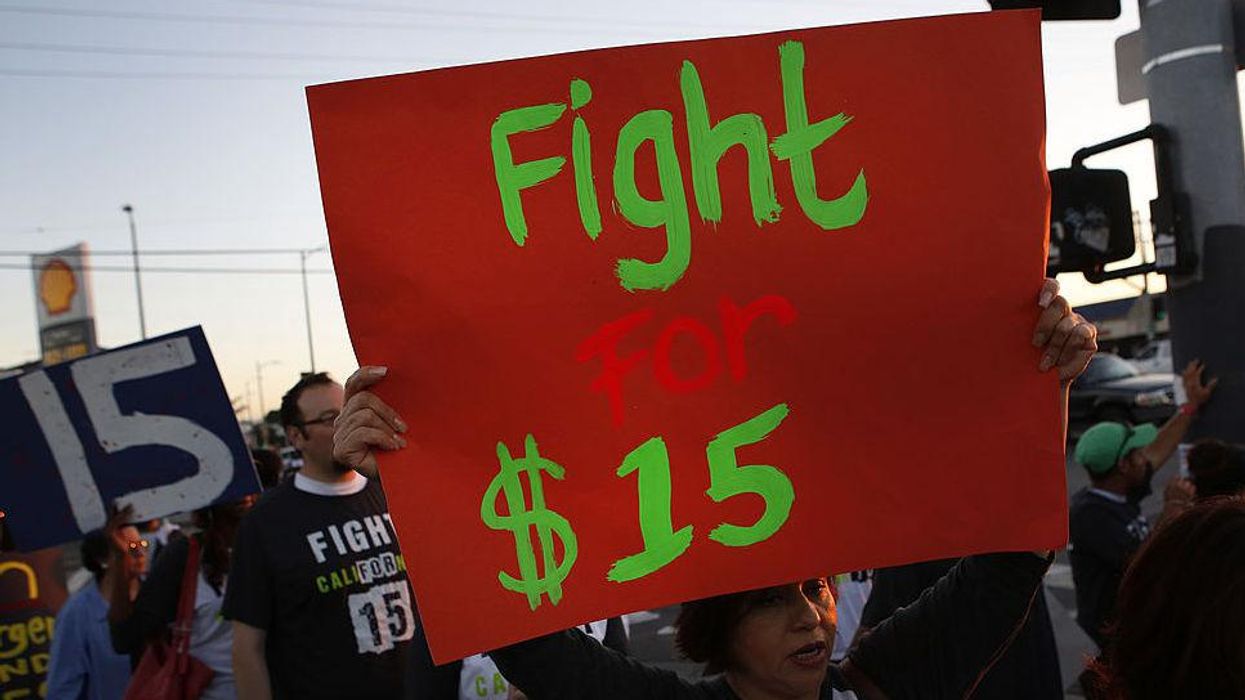
Patrick T. Fallon/Bloomberg via Getty Images

Businesses pass on the cost of higher wages to the consumer
New research studying the impact of government-mandated minimum wage hikes found exactly what critics of such policies predict: The cost is pushed onto consumers.
Proponents of hiking the federal minimum wage to $15 argue that every American is entitled to earn a "living wage" and that no person should work hard each week, yet still live below the poverty line.
But if the government forces businesses to increase their wages, Princeton economist Orley C. Ashenfelter and Czech economist Štěpán Jurajda found through studying price and wage data from nearly every McDonald's restaurant in the U.S., businesses themselves do not cover the cost of increased wages.
Instead, they found that businesses simply pass that cost on to consumers.
"Our data imply that McDonald's restaurants pass through the higher costs of minimum wage increases in the form of higher prices of the Big Mac sandwich," the researchers said.
Indeed, businesses will incur significant cost increases if politicians hike the federal minimum wage to $15 per hour, which would be more than double the current standard. For companies that employ large numbers of low-skilled positions, monthly payrolls would ballon thousands of dollars per month, at minimum.
As Brad Polumbo at the Foundation for Economic Education noted, having more money in one's pocket is not necessarily most important.
Rather, only increasing the purchasing power of one's money increases one's standard of living.
From FEE:
If a McDonald's cashier's take-home pay increases 20% after a minimum wage hike, but the prices for the food and other things they spend their wages on increase by a similar amount, they aren't actually any better off. This would happen throughout the economy, not just in fast food.
One poignant example comes courtesy of the Heritage Foundation's Rachel Grezler, who studied how minimum wage hikes would impact the cost of childcare; an enormous expense for many working-class families. "Childcare costs would increase by an average of 21 percent—an extra $3,728 per year for two children—and up to 43 percent, or more than $6,000, in some states," Heritage reports. "The impacts would be greatest in lower-cost areas; in Louisiana, Oklahoma, and Mississippi, costs would surge between 37 percent and 43 percent."
The Congressional Budget Office found in a 2019 report that despite lifting some Americans out of poverty, raising the minimum wage would leave perhaps even more Americans out of a job.
In fact, nearly 4 million Americans could lose their jobs, with 1.7 million lost jobs being the CBO's median estimate.
"In an average week in 2025, the $15 option would boost the wages of 17 million workers who would otherwise earn less than $15 per hour. Another 10 million workers otherwise earning slightly more than $15 per hour might see their wages rise as well," the CBO explained.
"But 1.3 million other workers would become jobless, according to CBO's median estimate. There is a two-thirds chance that the change in employment would be between about zero and a decrease of 3.7 million workers. The number of people with annual income below the poverty threshold in 2025 would fall by 1.3 million," the report added.